What would happen to an object with no tangential acceleration but a nonzero radial acceleration.
spin in a circle at a constant rate
Rank the following from largest torque to smallest torque, assuming the force of each is the same.
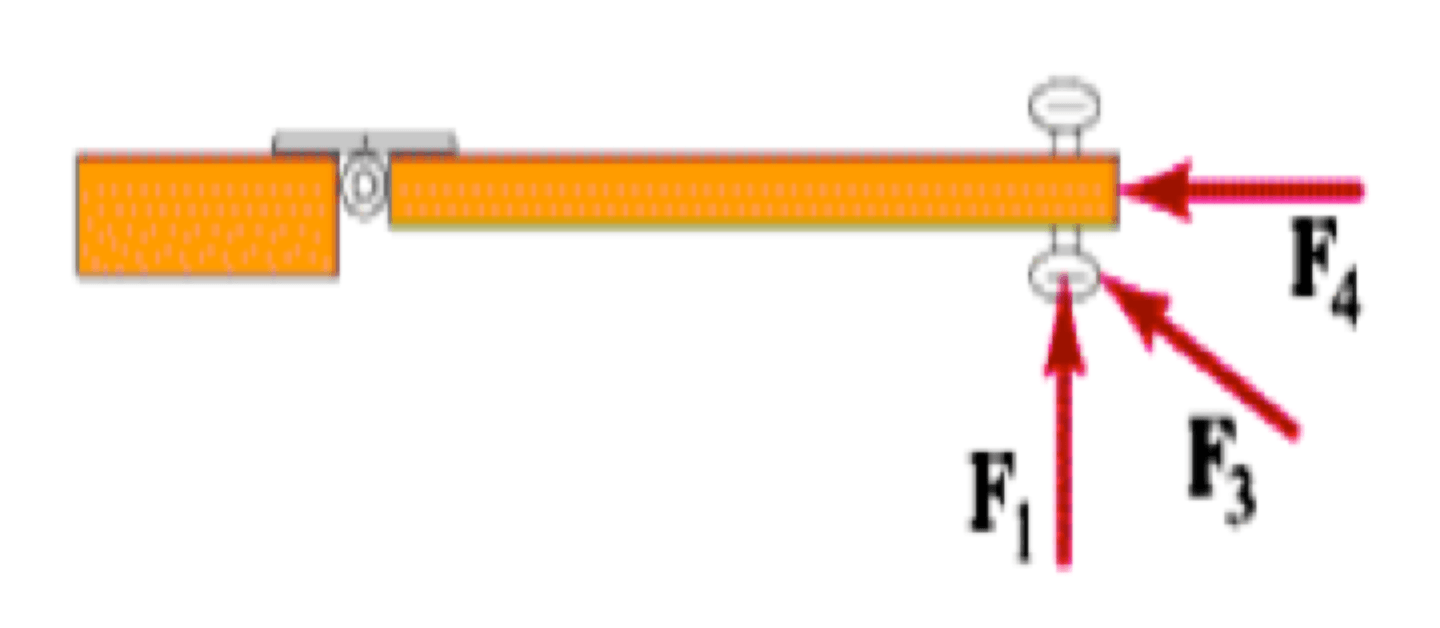
1 > 3 > 4
Symbol and units – in order – of angular velocity, angular acceleration, angular displacement.
angular velocity - omega - rad/s
angular acceleration - alpha - rad/s^2
angular displacement - Delta theta - rad
Which has more kinetic energy: a rolling disk or a rolling hoop? Assume they have the same radius, mass, and translational velocity.
hoop. Since KEr = I w2, a bigger I leads to a bigger KEr
If you double a flywheel’s rotational speed, by what factor will its rotational KE increase?
KE = 1/2 I w2:
4 times as much
Bonnie sits on the outer rim of a merry-go-round, and Klyde sits midway between the center and the rim (at r/2). Bonnie has an angular velocity of 12 rad/s and tangential velocity of 10 m/s. Calculate Klyde’s rotational and linear velocity.
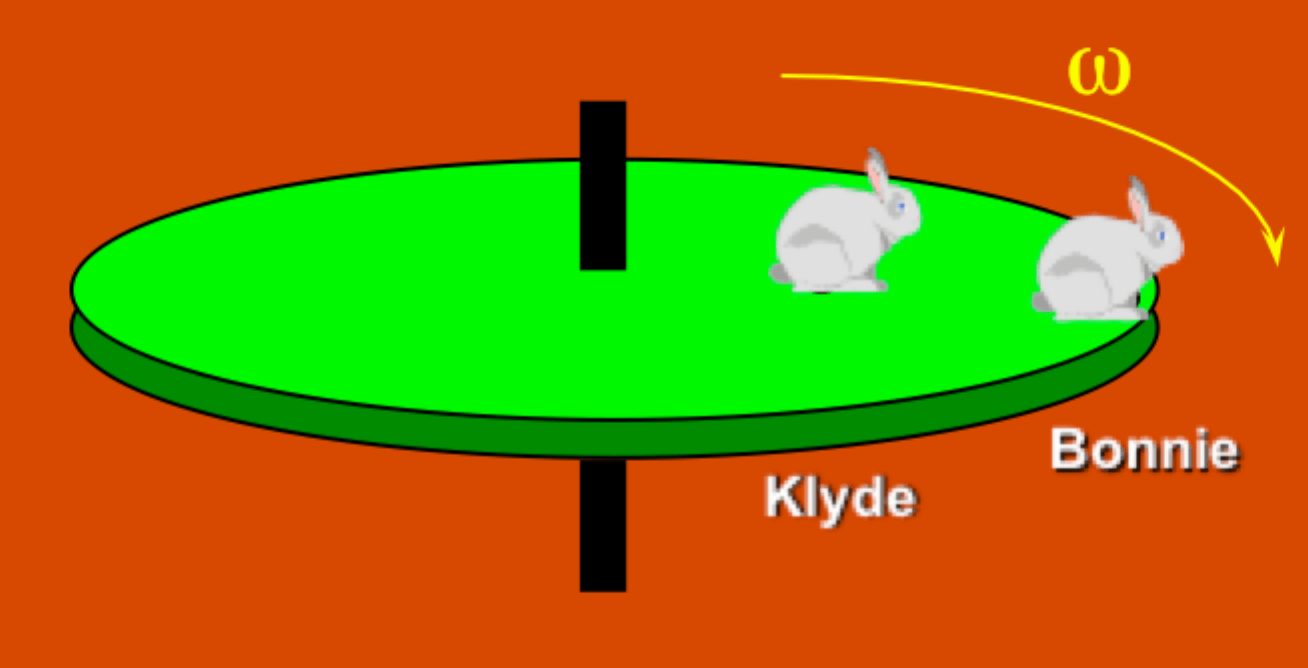
Klyde's rotational is still 12 rad/s. Klyed's linear velocity is 5 m/s.
A constant torque is applied to a wheel that starts at rest. Which of the following quantities stay constant (there may be more than one)?
- Angular velocity
- Angular acceleration
- linear tangential velocity
- linear tangential acceleration
- linear radial/centripetal acceleration
angular acceleration and linear tangential acceleration.
Constant tau causes a constant alpha and therefore a constant a_T=r\alpha . alpha causes a changing omega and therefore a changing v=r omega . The centripetal acceleration a_C=\omega^2 r is changing because \omega is changing
Symbol and units of angular momentum.
L - kg m^2/s
Two different spinning disks have the same angular velocity, but disk 1 has more kinetic energy than disk 2. Which one has the bigger moment of inertia? Why?
KE = 1/2 I w^2 They have the same w. So in order for 1 to have more KE, it has to have more I.
You are holding a spinning bicycle wheel (spinning counter clockwise) while standing on a stationary turntable. If you suddenly flip the wheel over so that it is spinning clockwise, the turntable will do what?
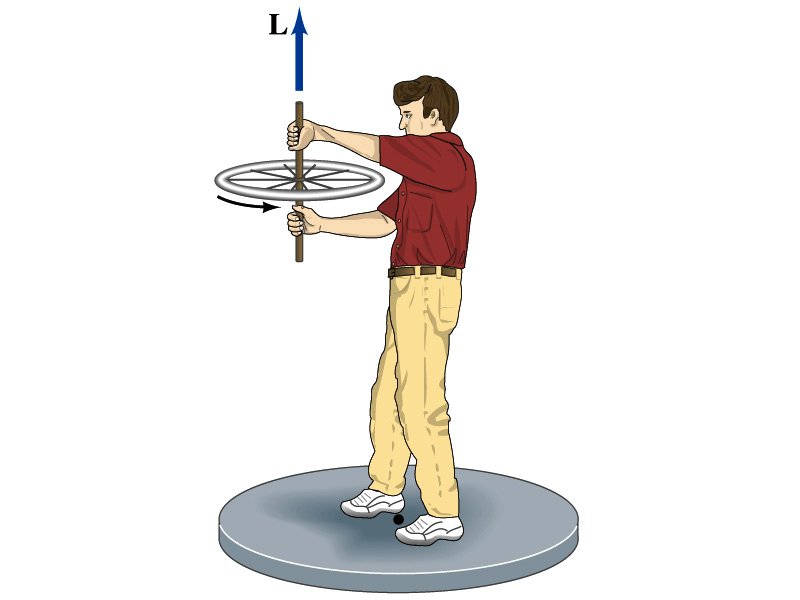
spin counter clockwise (The total angular momentum of the system is L upward, and it is conserved. So if the wheel has -L downward, you and the table must have +2L upward.)
Calculate the rotational velocity needed on wheel A in order to make wheel B achieve a rotational velocity of 25 rad/s. Assume the radius of A is 30 cm and the radius of B is 50 cm.
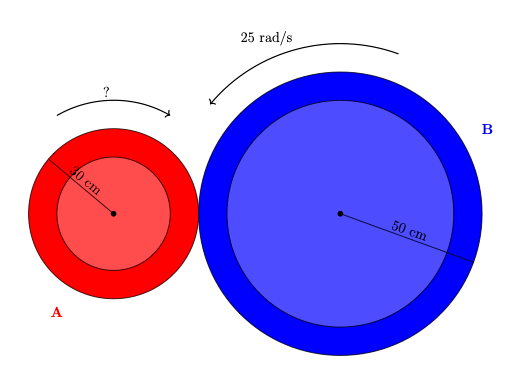
41.7 rad/s
Rank the following from largest torque to smallest torque, assuming the force on each nut is the same. (Hint: two are tied)
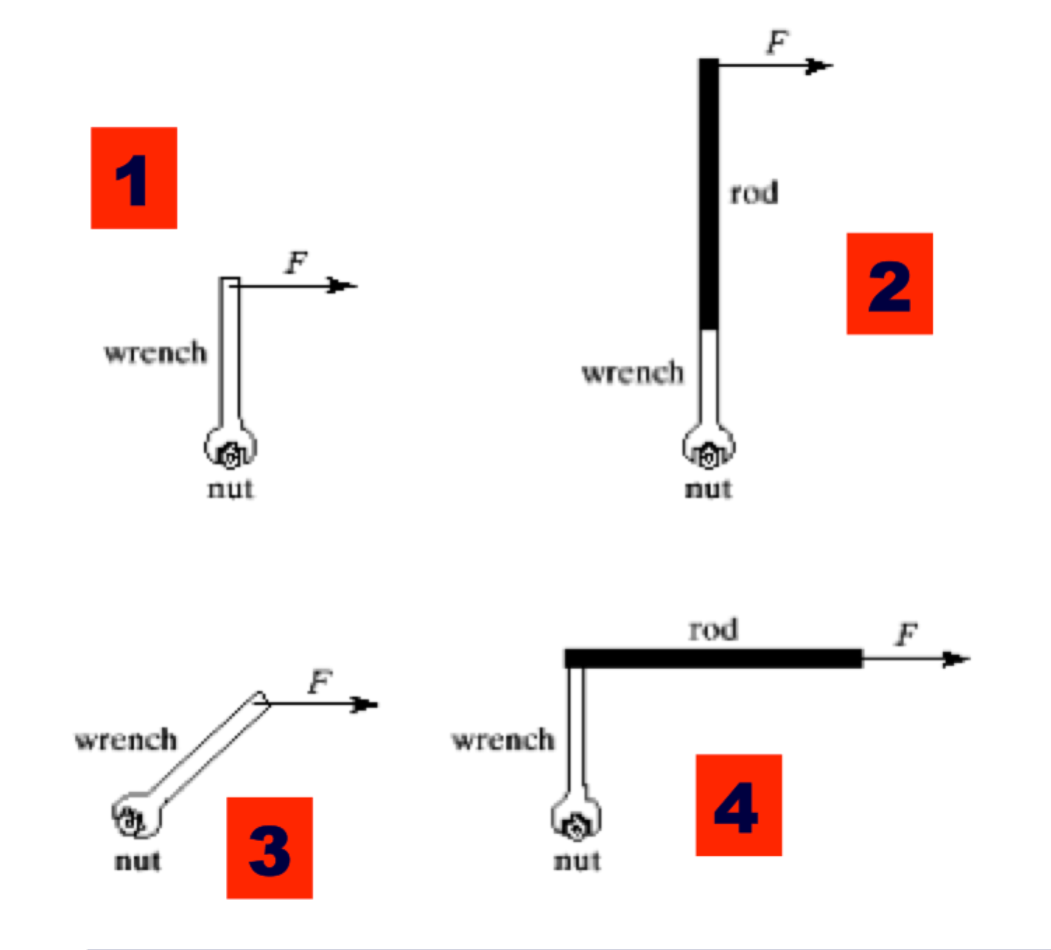
2 > 1 = 4 > 3
Convert 300 rpm to rad/s
31.4 rad/s
Why does an ice skater spin faster when she pulls her arms in?
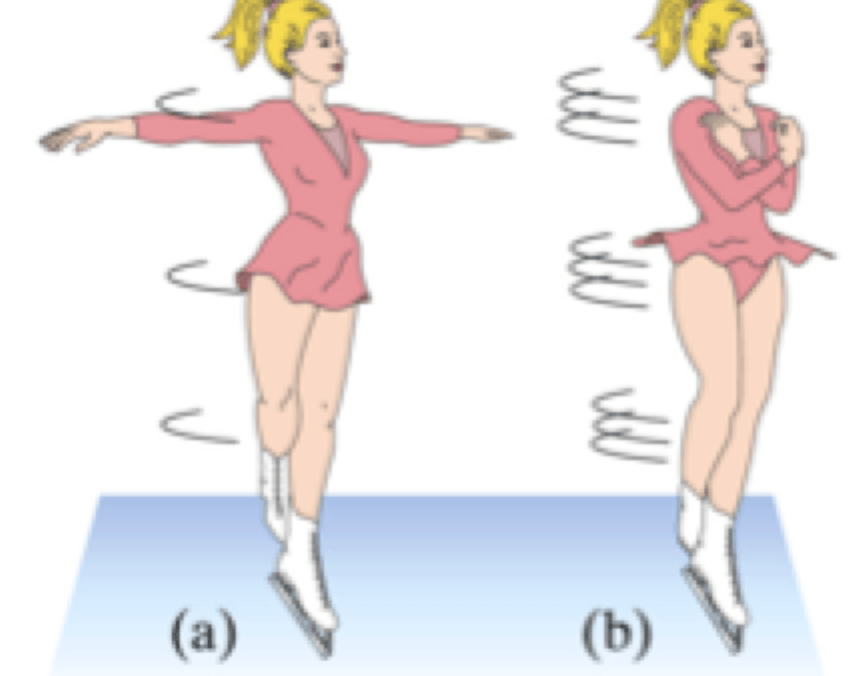
radius is smaller, so I is smaller. This leads to a larger w
A solid cylinder (disk) of radius 20 cm and a solid sphere of radius 35 cm are released at the same time from the top of a ramp. Which will reach the bottom first?
sphere has I = 2/5 mr^2. Cylinder has I = 1/2 mr^2. Relatively speaking, sphere has less fraction of inertial moment, so more of the KE will be translational.
A truck's speedometer measures the angular speed of its tires and converts it to a linear speed on your dashboard. If you replace a truck's tires with LARGER DIAMETER tires but do not adjust the speedometer, will the speedometer readings be
- faster than the true speed of the truck,
- slower than the true speed of the truck, - or -
- equivalent to the true speed of the truck?
the speedometer will read too slow. Every revolution, the tire will have traveled farther than expected. Therefore, it will be travelling faster than the speedometer expects. Alternative explanation: The linear speed is v = wR. So when the speedometer measures the same angular speed w as before, the linear speed v is actually higher, because the tire radius is larger than before.
Two spheres have the same radius and equal masses. One is made of solid aluminum, and the other is made from a hollow shell of gold. Which one has the bigger moment of inertia? Explain.
hollow shell of gold has more I because more of its mass is at a larger radius
Symbol and units – in order – of torque, moment of inertia, rotational kinetic energy
torque = tau = mN;
moment of inertia = I = kg m^2;
rotational KE = KE_r = Joules
Rank from largest kinetic energy to smallest kinetic energy:
1. 20-kg sphere moving with a linear speed of 7 m/s.
2. 20-kg block moving with a linear speed of 7 m/s.
3. 20-kg hoop moving with a linear speed of 7 m/s.
hoop (mv^2) > sphere (7/10 mv^2) > block (1/2 mv^2)
Which of the following has a larger angular momentum?
- A solid cylinder (disk) of mass M and radius 2R and angular speed ω.
- A hollow cylinder (hoop) of mass M and radius R and angular speed 2ω.
They both have the same angular momentum:
2 M R^2 \omega